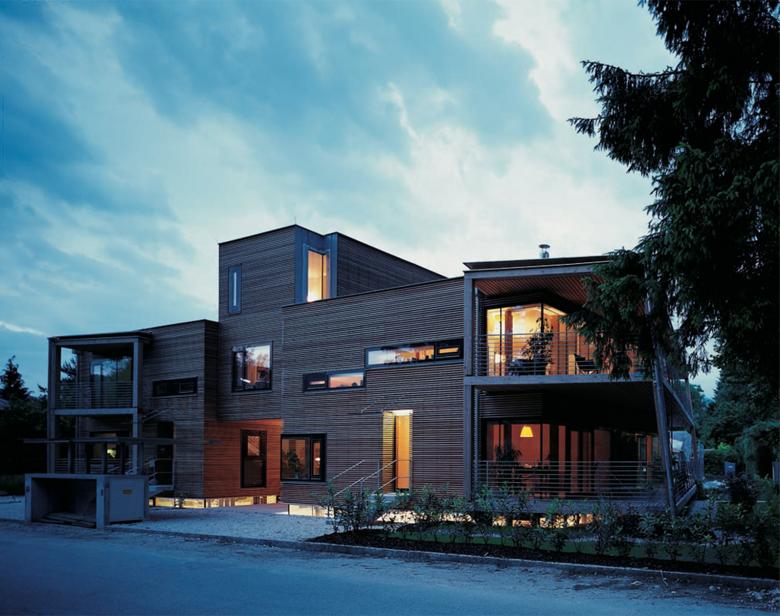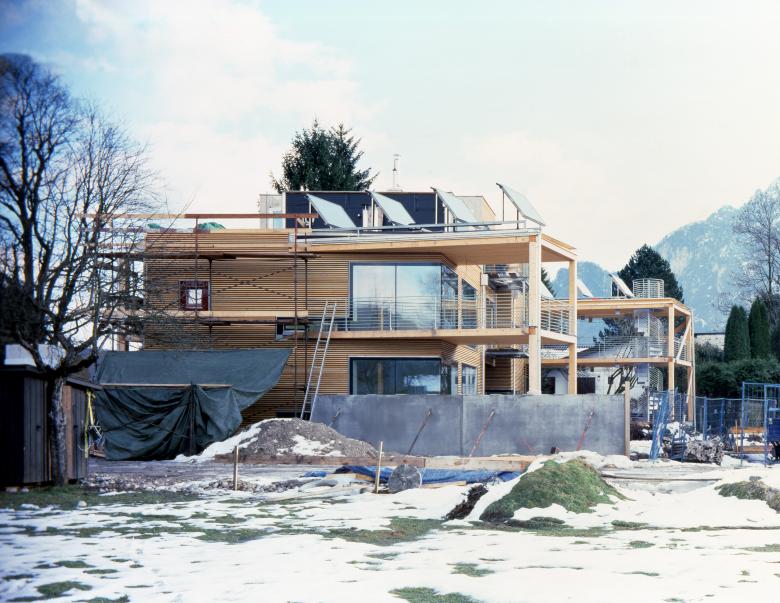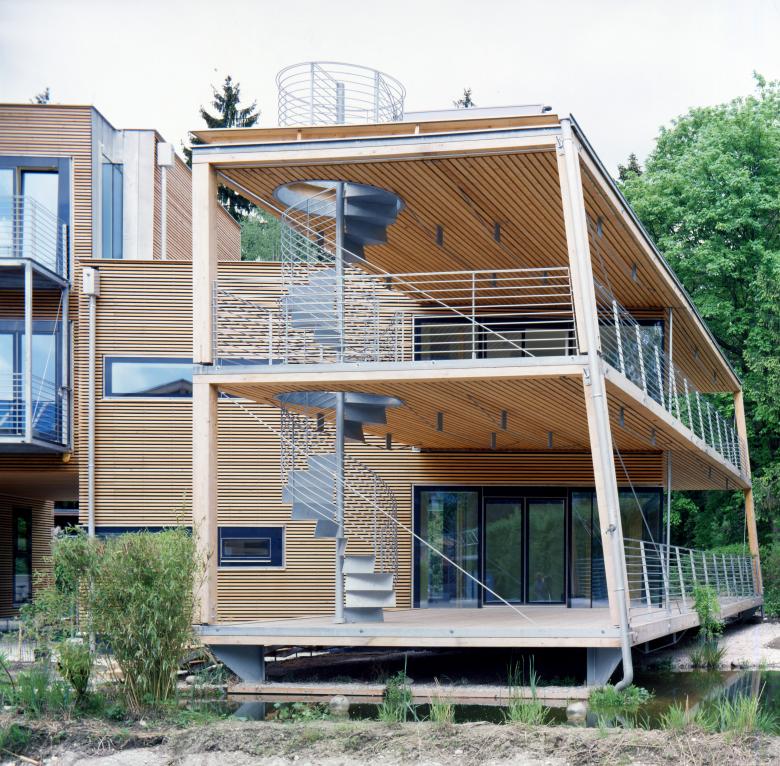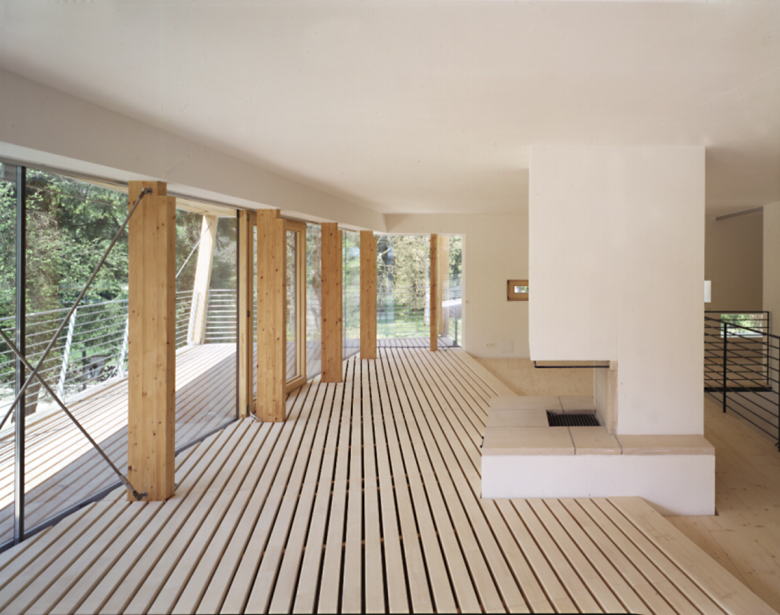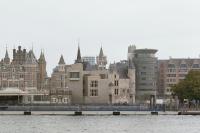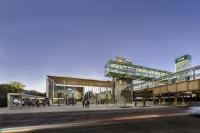Furniture in the Landscape
Rif, Austria
In the course of the planning process, fundamental wishes for the living space were concretized, which can hardly be formulated in the case of dense development such as a usual row house. A solution could be found for this problem, however, each residential unit is organized like a classic single-family house in order to generate a feeling of independence.
In addition, all floors are connected directly to the garden with oversized verandas. Via these verandas, the roof areas are also partially accessed externally as a replacement for lost floor areas. The alignment of the living rooms and the veranda areas was chosen in such a way that privacy is created for the individual families. Due to the high rainfall in the building area, the verandas are actually open spaces that can be used for livingand that have become indispensable for the residents.
For a subsequent change of the living requirements, without great effort, the device for extensions and conversions is ensured. The basement was also thought of as a possible extension of the usable living space, as it represents the last changeable space reserve of a family with a small amount of space. It is reached from the open middle part of the house directly via an additional house entrance and thus enables a later separation of the residential unit. All basement rooms were generously opened with a ribbon of windows so that the basement rooms are bright and comfortable. The body of the building appears to be floating due to the visual separation of the body through the ribbon of windows.
The open middle section under the raised residential unit is for general use and is designed as a meeting point for the residents. Garden parties, games and events can also be held here under the covered open space.
The choice of wood as a building material was clear to the residents for ecological and economic aspects as well as for reasons of living comfort. The configuration of the structure was designed to be compact, but a rigid basic stance on this issue was broken in the sense of better living conditions. The passive house standard that was actually being strived for was abandoned in favor of the quality of living with large glazing and open space references and the building was instead designed as a low-energy building.
With the high standard of thermal insulation chosen, particular attention was paid to the design of the details and the execution control. The windows were designed as three-pane glazing, which were placed over the window frames and window frames in order to additionally insulate the construction with the help of the glazing - after all, the area of the window and the reveal is disproportionately involved in heat loss with normal execution.
The constructive measures were supplemented by leakage checks on the building envelope. To check thermal bridges, infrared images were made in order to be able to repair any weak points. Two living parties opted for CO2-neutral firing with an automatic pellet stove in the basement, the other living party ventilates the house for better air hygiene and distributes the heat by means of a controlled living room ventilation via a post-heating register, with the advance warning of the outside air via an earth register and then through a heat exchanger takes place. The house can also be cooled in summer, and the windows can also be opened at any time.
- Architects
- Lechner & Lechner Architects
- Location
- Rif, Austria
- Year
- 1999
- Team
- Horst Josef Lechner, Christine Lechner
